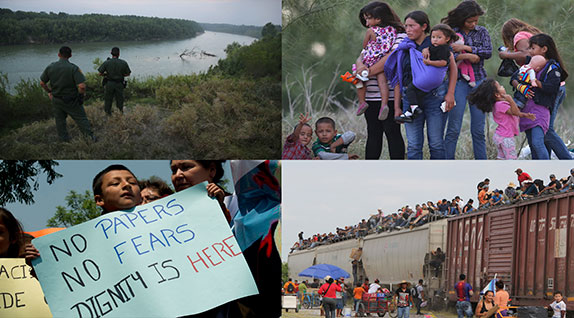 John Moore/Getty Images (top left); Elizabeth Ruiz/AFP/Getty Images (Top right); Yuri Cortez/AFP/Getty Images (Bottom left); Elizabeth Ruiz/AFP/Getty Images (Bottom right)
John Moore/Getty Images (top left); Elizabeth Ruiz/AFP/Getty Images (Top right); Yuri Cortez/AFP/Getty Images (Bottom left); Elizabeth Ruiz/AFP/Getty Images (Bottom right)
Article
For the United States to address its immigration problems, it must get to the core of the issue.
Learn the why behind the headlines.
Subscribe to the Real Truth for FREE news and analysis.
Subscribe NowDuring a nationally televised address on November 20, United States President Barack Obama announced plans to sign an executive order to temporarily fix aspects of the country’s immigration problem. In his roughly 15-minute speech, Mr. Obama outlined numerous actions that would remove the threat of deportations to those who entered the United States illegally but have been in the country for at least five years.
The Associated Press reported: “Spurning furious Republicans, President Barack Obama unveiled expansive executive actions on immigration…to spare nearly 5 million people in the U.S. illegally from deportation and refocus enforcement efforts on ‘felons, not families.’
“The moves, affecting mostly parents and young people, marked the most sweeping changes to the nation’s fractured immigration laws in nearly three decades and set off a fierce fight with Republicans over the limits of presidential powers.
“In a televised address to the nation, Obama defended the legality of his actions and challenged GOP lawmakers to focus their energy not on blocking his actions, but on approving long-stalled legislation to take its place.
“‘To those members of Congress who question my authority to make our immigration system work better, or question the wisdom of me acting where Congress has failed, I have one answer: Pass a bill,’ Obama said, flexing his presidential powers just two weeks after his political standing was challenged in the midterm elections.”
Why has America still not solved its immigration problems? Why has a permanent solution not yet been found?
Nation of Rights
America is a nation of “rights.” In the past 50 years, the United States has seen virtually every rights movement imaginable: civil rights, students’ rights, abortion rights, disabilities rights, gun ownership rights, women’s rights, victims’ rights.
And for some time now, immigrants’ rights.
An increase of illegal entries across the U.S.-Mexico border—many children from Honduras, El Salvador, and Guatemala—has reignited the debate: “The Rio Grande Valley is now the hottest spot for illegal crossings of the 2,000-mile border between the United States and Mexico. And an increasing number of border-jumpers are children travelling without their parents. The number of unaccompanied children caught crossing has surged to about 52,000 so far this fiscal year, which started in October [2013], up from 15,700 in fiscal 2011.”
 Jewel Samad/AFP/Getty Images
Jewel Samad/AFP/Getty Images
“The sudden influx of children into the United States has nearly overwhelmed the agencies that must deal with it. Detention facilities for children who cross the border illegally are horribly overcrowded. On June 5th Breitbart Texas, a conservative news site, published leaked photos showing dozens of children crammed into bare rooms. Barack Obama speaks of an ‘urgent humanitarian situation’.
“The White House blames the influx on instability in Central America. A report by the UN High Commissioner for Refugees in March, based on interviews with around 300 Central American under-age detainees in the United States, put gang violence and domestic abuse high among the causes of flight—along with a desire to be reunited with relatives in America” (The Economist).
It is estimated by the U.S. Department of Homeland Security that between 11 and 12 million foreigners live and work in the U.S. illegally, with roughly 500,000 aliens migrating to America every year. Largely fleeing from poverty, unemployment and sometimes violence in their native countries, many are poorly educated and work menial, low-paying jobs that most native-born Americans will not accept.
Emerging from this underground workforce is a collective voice that is demanding its “rights”—the right to amnesty—the right to pay in-state college tuition rates—the right to citizenship.
Opposing Views
Illegal immigration is a controversial issue that is being hotly debated between—and within—the ranks of Republicans and Democrats. Politicians expect it to be a key issue in the November 2014 midterm elections.
 Sandy Huffaker/Getty Images
Sandy Huffaker/Getty Images
Most Republicans seeking re-election must play to their conservative base and call for stronger immigration laws. Yet this will be at the risk of losing Hispanic voters, a key demographic.
Republicans also realize that enacting tougher immigration reforms could diminish the support of businesses. With fewer workers available to take on low-paying jobs, wages will go up, and profit margins will go down.
Democrats must also perform a political balancing act. Will they risk aligning themselves with the president, who advocates certain incentives for illegal immigrants—and miss an opportunity to set themselves apart from the current administration, which is struggling against historically low approval ratings?
U.S. congressional lawmakers are divided between two opposing camps, with some liberals and conservatives finding unlikely agreement on this issue. Yet, even among those who agree, proposals vary regarding how to resolve the problem.
On one side of the debate are those who support reforms that benefit undocumented workers. Plans range from opposing any immigration restrictions—to amnesty for illegal aliens (or for employers willing to sponsor them) and for their spouses and children—to temporary guest-worker programs—to allowing additional “temporary workers” and their families into the country—to legalizing the millions of illegals already living in the U.S.—to giving illegal students amnesty and free college educations.
 Robyn Beck/AFP/Getty Images
Robyn Beck/AFP/Getty Images
(Ironically, some activists protest the use of the word “amnesty” because it denotes that a crime has been committed. Others would argue that when one lives and works in a country illegally, a crime has been committed—the law has been broken.)
The DREAM (Development, Relief, and Education for Alien Minors) Act, rejected by Congress in 2012, largely revolved around these sorts of concessions for young illegals. President Obama then initiated the DACA (Deferred Action for Childhood Arrivals), which critics contend serves as an incentive for children to make their way into the U.S.
The new influx of youth coming through Mexico has led to heated confrontations at the border, with citizens’ groups forming human blockades to stop buses full of children being transported to processing centers.
Some have charged that any deterrent against illegal entry amounts to racism. Yet many immigrants who have come to the U.S. legally have joined the ranks of citizens calling for tougher immigration measures.
Unaccompanied Minors
During midsummer, a photographer visited the U.S. Customs and Border Protection Nogales Placement Center in Arizona. Hundreds of immigrant children—ranging from toddlers to teenagers who were sent by themselves to the American border—were temporarily housed at the site. The images he captured revealed the many difficulties caused by the situation. Sleeping arrangements were mattresses with metallic-looking emergency blankets or simply blankets piled on the floor. Much of the time was spent waiting: for medical checkups, to make phone calls, and ultimately to see whether they will be able to stay in the country or escorted home. To pass the time, the children watched World Cup soccer matches on televisions that hung from the ceiling or played basketball on makeshift basketball hoops. Government officials worked to keep each person at the site for 72 hours or less before placing them in the care of the Department of Health and Human Services. USA Today wrote, “By year’s end, 70,000 to 90,000 unaccompanied children are expected to cross the border compared to only 24,000 in 2013.”
Government leaders who advocate cracking down on illegal immigration offer a wide range of proposals:
- Opposing any guest-worker program
- Increased funding for the U.S. Border Patrol and adding more federal agents
- Enabling local law enforcement to protect citizens from illegal immigration
- Requiring foreign countries to quickly accept their citizens back
- Denying “birthright citizenship” to newborn children of illegals
- Ending welfare benefits for illegal immigrants
- Prohibiting in-state education for children of illegals
- Requiring certain businesses to verify, via a computerized system, an employee’s Social Security number
- Enforcing laws that forbid localities from preventing police from reporting immigration information
- Implementing a national exit-entry tracking system for all aliens (as mandated by the 1996 Illegal Immigration Reform and Immigrant Responsibility Act)
- Enacting stiffer penalties for alien smugglers
- Cracking down on the construction or financing of tunnels into the U.S.
- Authorizing the use of armed forces on the border
- Preventing driver’s licenses issued to illegal immigrants from being used for federal purposes, such as boarding a plane
Many Americans do not favor the prospect of illegal immigrants instantly receiving U.S. citizenship—including the right to vote.
Politicians are left with making decisions that will ultimately please almost no one, and will anger most.
A Look Back
There is a reason America is grappling with its ever-growing immigration problem. There is a reason commentators, politicians, bureaucrats and think tanks cannot agree on a solution. The country is feeling the effects of physical symptoms that have spiritual causes.
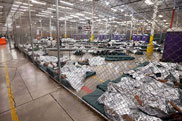 Ross D. Franklin-Pool/ Getty Images
Ross D. Franklin-Pool/ Getty Images
And the answers to spiritual causes are found in Scripture. Yet sadly, very few, including leading scholars, thinkers and leaders of traditional Christianity, are aware of this.
For a better understanding of America’s immigration headaches, it is important to first understand that, even since ancient times, nations and kingdoms have had to address growing populations of foreigners living among them.
Consider the beginning of the ancient nation of Israel. Even those who possess little biblical knowledge are familiar with the story of Joseph and his brothers, the family of Israel, coming to live in Egypt. At first, they were welcome. But after some years had passed—and as the Israelites began to reproduce faster than the Egyptians—the rulers of Egypt began to see them as a threat. This fear led to Israel’s enslavement.
While most are familiar with the biblical account of God eventually delivering them from slavery, few understand Israel was actually comprised of 12 tribes, which eventually divided into two distinct kingdoms: the house of Israel (led by the half-tribes of Ephraim and Manasseh) and the house of Judah (with parts of Levi, Benjamin and Simeon).
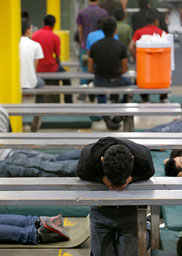 Ross D. Franklin-Pool/ Getty Images
Ross D. Franklin-Pool/ Getty Images
God picked Israel to be His chosen people, “holy” and “special…above all people that are upon the face of the earth” (Deut. 7:6). But was this because they were inherently superior to everyone else? Notice: “The Lord did not set His love upon you, nor choose you, because you were more in number than any people; for you were the fewest of all people: but because the Lord loved you, and because He would keep the oath which He had sworn unto your fathers, has the Lord brought you out with a mighty hand, and redeemed you out of the house of bondmen, from the hand of Pharaoh king of Egypt” (vs. 7-8).
God is not a “respecter of persons” (Acts 10:34; Rom. 2:11). He rescued the Israelites from their meager existence and gave them His commandments, statutes and judgments so they would become a model nation: “Behold, I have taught you statutes and judgments, even as the Lord my God commanded me, that you should do so in the land where you go to possess it. Keep therefore and do them; for this is your wisdom and your understanding in the sight of the nations, which shall hear all these statutes, and say, Surely this great nation is a wise and understanding people. For what nation is there so great, who has God so near unto them, as the Lord our God is in all things that we call upon Him for? And what nation is there so great, that has statutes and judgments so righteous as all this law, which I set before you this day?” (Deut. 4:5-8).
 Ross D. Franklin-Pool/ Getty Images
Ross D. Franklin-Pool/ Getty Images
If ancient Israel had faithfully obeyed God, diligently turning to Him as their Ruler and Lawgiver, they would have reaped the wonderful blessings of national peace and prosperity. Also, their shining example would have led the surrounding nations—and ultimately all nations (Gen. 18:18)—to learn God’s laws, and reap the subsequent blessings of practicing His way of life.
Among these laws were statutes and precepts that governed the welfare and conduct of foreigners who were allowed to live among the Israelites (Ex. 12:37-38). God declares that He loves the “stranger” (Deut. 10:17-18) and expected Israel to do the same: “And if a stranger [foreigner] sojourn with you in your land, you shall not vex him. But the stranger that dwells with you shall be unto you as one born among you, and you shall love him as yourself; for you were strangers in the land of Egypt: I am the Lord your God” (Lev. 19:33-34).
“Strangers” (or foreigners) were protected from oppression: “You shall neither vex a stranger, nor oppress him: for you were strangers in the land of Egypt” (Ex. 22:21). “Also you shall not oppress a stranger: for you know the heart of a stranger, seeing you were strangers in the land of Egypt” (23:9).
Foreigners were to receive the same standard of judgment and fairness that was rendered to the Israelites (Lev. 24:19-22, 19:34-35; Deut. 24:17-18, 27:19).
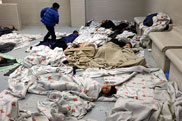 Ross D. Franklin-Pool/ Getty Images
Ross D. Franklin-Pool/ Getty Images
But to live among the Israelites, immigrants had to keep the same commandments, statutes and judgments that God’s people were commanded to keep. This included observing God’s weekly Sabbath (Ex. 20:8-10, 23:12) and annual Holy Days (Exodus 12:18-19; Lev. 16:29-31). They were required to abstain from pagan sexual practices described in Leviticus 18: “You shall therefore keep My statutes and My judgments, and shall not commit any of these abominations; neither any of your own nation, nor any stranger that sojourns among you: (For all these abominations have the men of the land done, which were before you, and the land is defiled)” (vs. 26-27).
God divided the Promised Land among the clans and families of the 12 tribes. These properties—which were vital to the Israelites’ livelihood—were to be inherited from generation to generation. They were not allowed to be sold to non-Israelites.
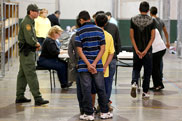 Ross D. Franklin-Pool/ Getty Images
Ross D. Franklin-Pool/ Getty Images
But God did not forget those who were without property or who suffered hardship. He established a financial assistance program to provide for the Levites (who did not receive a land inheritance), the fatherless, widows and for “the stranger” (Deut. 26:12). However, the poor were expected to do their part. For example, while God instructed His people to leave some crops behind for the underprivileged when harvesting, the poor had to glean the food. This required work!
Yes, Israel’s Deliverer looked out for the immigrants among His people. However, He also set a difference between the “stranger” and the Israelite. There were certain things that only His people were allowed to do. For instance, foreigners were forbidden to eat the Passover meal (Ex. 12:43-47)—that is, unless they became full citizens (vs. 48-49).
Modern Problem, Ancient Roots
While God instructed His people to treat foreigners among them with fairness, He also expected Israel to lead the way—His Way—in how to live, rather than allowing “strangers” to dictate the course of the nation.
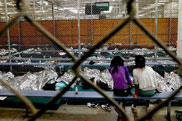 Ross D. Franklin-Pool/ Getty Images
Ross D. Franklin-Pool/ Getty Images
But ancient Israel rejected God and His Law. As they continually rebelled against their Deliverer and rejected His guiding hand, the kingdom gradually fell into a downward spiral toward national depravity. Despite multiple warnings from His faithful servants, God had to remove His blessings, replacing them with severe droughts, famines, diseases, humiliating military defeats, and other national curses. Also among these was the fulfillment of God’s warning: “The stranger that is within you shall get up above you very high; and you shall come down very low. He shall lend to you, and you shall not lend to him: he shall be the head, and you shall be the tail” (Deut. 28:43-44).
Verse 45 explains that “all these curses shall come upon you, and shall pursue you, and overtake you, till you be destroyed; because you listened not unto the voice of the Lord your God, to keep His commandments and His statutes which He commanded you.”
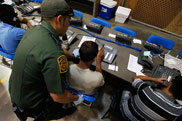 Ross D. Franklin-Pool/ Getty Images
Ross D. Franklin-Pool/ Getty Images
When God delivered Israel out of Egypt and led them to the Promised Land, He had intended to fulfill His promise to the patriarch Abraham (Gen. 12:3, 18:18, 22:17-18).
Yet both houses were taken away into national captivity. The people of Judah (today known as the Jews) returned to the Holy Land, and retained their ancient identity to this very day. But the house of Israel “disappeared” into the pages of history, and lost knowledge of their origins. Today, their descendants are largely oblivious to their biblical identity.
Because of this, the national birthright promise to Abraham’s seed had to be fulfilled at another time. God did this through blessing the greatest “nation and a company of nations” (Gen. 35:10-12) in man’s history—the United States of America (Manasseh) and the former British Empire (Ephraim). Their meteoric rise to prominence was unprecedented.
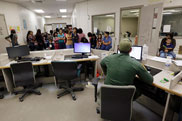 Ross D. Franklin-Pool/ Getty Images
Ross D. Franklin-Pool/ Getty Images
But like their ancestors before them, Israel’s modern-day descendants have rejected their Lawgiver. They have thrown out His laws—which were to be their “wisdom” and “understanding in the sight of the nations” (Deut. 4:6)—to live by their own laws, their own rules of conduct.
Look at the result. Without God’s laws as the standard for wisdom and rendering good judgment, men cannot agree on right and wrong. They are forced to pass new laws—new codes—new regulations—year after year, as society’s values change with each successive generation.
This is reflected in America’s struggle to find a solution to aliens living and working in the country illegally. The American people cannot even agree on whether to call them “illegal immigrants” or “undocumented workers.”
Consider. Millions of Americans, even most who claim to be Christian, consider the Law of God burdensome and that it restricts individual freedoms. Yet God’s Law, contained in the pages of the Bible, can be held in one hand—while men produce vast libraries of laws, codes, rulings and regulations that attempt to address virtually every miniscule detail of life.
And what has this yielded? Mass bureaucracy—inconsistent and unjust court renderings—abuses in interpreting the law—legal chaos and confusion! This is freedom?
The U.S. already has laws in place that address the rise of illegal immigration—yet people lack the will to enforce them. Lawmakers are at a crossroads: if they do nothing, the problem will not go away; it will only grow worse. On the other hand, no matter what proposals are passed and enforced, a large segment of the voting populace will be upset—and they will show their anger at the ballot box.
Without the Law of God as their guiding light (Prov. 6:23), the people of the United States—modern Manasseh—are entering dark times. For a clear picture of what the Bible declares is ahead for America, read David C. Pack’s eye-opening book America and Britain in Prophecy. It explains the problems facing this and other nations—as well as the causes and solutions.
More on Related Topics:
- Haiti Faces a Sexual Violence and Abuse Crisis as Gang Violence Spreads, Health Charity Warns
- As Haiti Faces Further Political Turmoil, the UN Signals More Troops on the Way
- Hopeful Yet Wary, Venezuelans Across Latin America Mull Going Home
- Their Homes Survived the Historic LA Area Wildfires. A Year Later, They Fear Living in Them
- U.S. Travelers Scramble to Adjust as Airlines Cut Flights Because of Shutdown



